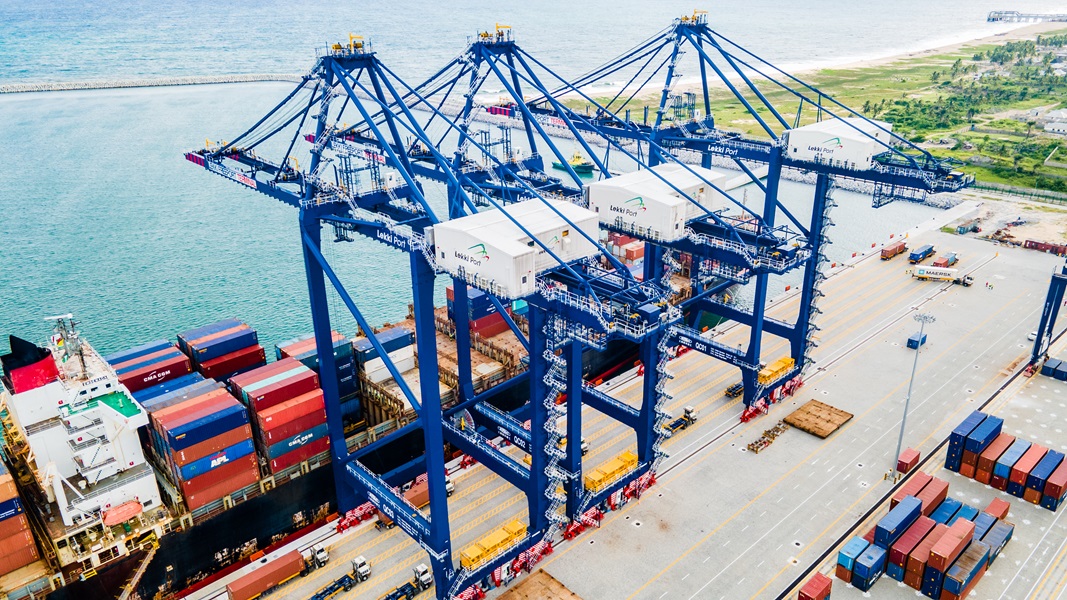Nigeria’s Lekki deep sea port can handle up to 2.5 million container annually:Tejaswi Avasarala, General Manager of Lagos Free Zone
19 August, 2024
The Lekki deep sea port in Nigeria, which began operations in April 2023 and covers 90 hectares, can accommodate 2.5 million containers a year. The general manager of the Lagos Free Zone, Tejaswi Avasarala, has highlighted the importance of the port in bilateral trade with India.
MUMBAI: The Lekki deep sea port in Nigeria, which began operations in April 2023 and covers 90 hectares, can accommodate 2.5 million containers a year. The general manager of the Lagos Free Zone Tejaswi Avasarala, has highlighted the importance of the port in bilateral trade with India.
“India is the largest trade partner for Nigeria in the world, and Nigeria is the largest trade partner for India in the African continent, the bilateral trade is currently about $13 billion in 2023, both the countries are already flourishing with more than 130 Indian companies that are present locally in Nigeria, with a cumulative investment stock of about $30 billion,” Avasarala said.
He further said, “About 60% to 70% of the total capacity of all Nigerian ports combined is handled by the first phase, which is presently in service and has a capacity of 1.2 million containers annually”
"We have also handled Nigeria's first transshipment vessel," Avasarala went on. In addition, we handled the first LNG-powered vessel in Nigeria. By 2024, we anticipate closing at a throughput of 400000 TEUs annually, or around 25% of the country's overall container market. And for a new port that has just been operating for eighteen months, that is a major ramp-up.
Tolaram owns 100% of the Lagos free zone, where the Lekki deep sea port was built.
"We have everything we need to support a wide range of manufacturing, subsector, and subsectors, including FMCG, packaged goods, chemicals, oils, non-metallic minerals like ceramic and glass, pharmaceuticals, engineering, and automobiles, as well as pulp and paper, which are all priority subsectors," the general manager continued.
He went on to say that Tata International is the Indian business that operates within the free zone. And, we have discussed with a variety of Indian businesses, including those in the large cap and MSME sectors. Some of those conversations are currently ongoing.
The first private free trade zone in Nigeria, supported by the Singapore-based Tolaram Group, plans to go public on the stock exchange of the most populous country in Africa. Tejaswi Avasarala said in a statement that the listing will enable more Nigerians to "benefit from the value that is going to be created from Nigeria's first modern port-based free zone," which will be able to accommodate 200 businesses when it is finished.


